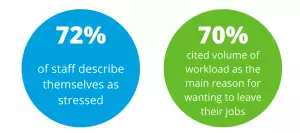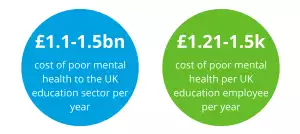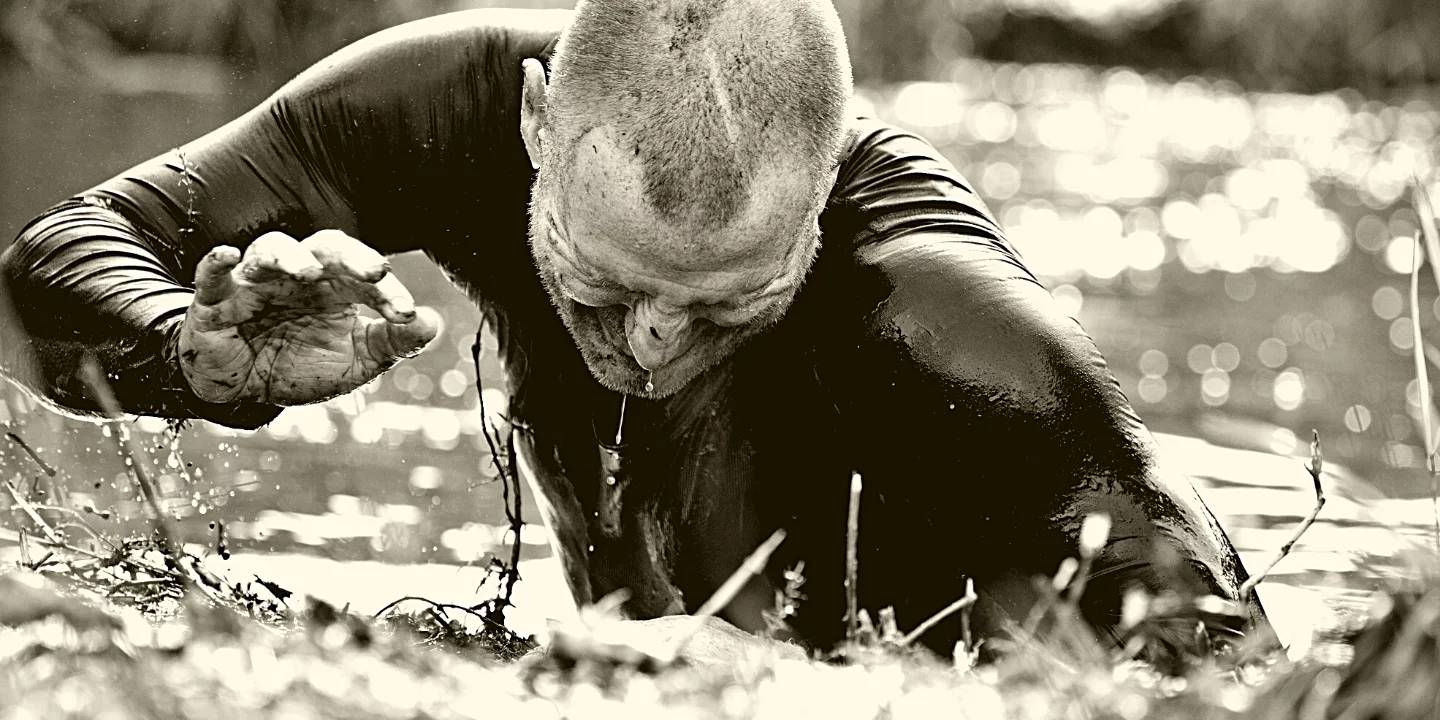secondary schools
Do you walk the walk, or are you just talk?
Do you walk the walk, or are you just talk?
By Karen Amos
I’ve been feeling challenged recently. What’s new you may ask? The world feels like it’s going to hell in a hand cart and to be honest, it’s hard to know where to direct your outrage.
I guess I’ve been challenged around my values. My ethics. What I stand for. And mainly that many people who say they stand for a certain thing, do nothing of the kind in practice. In fact, they overtly and cynically do just the opposite.
So yes, I’m talking about the current government (I won’t expand, as I don’t even know where to start), but also leadership around the world. Saying one thing – doing another.
But let’s stop a minute in our righteous indignation and look a little closer to home too. Let’s look at hype, at marketing and advertising. Then let’s look at our own and other’s behaviour around us, including in the workplace.
This reminded me of a phrase a work colleague, Ursula Wood of Wellbeing Umbrella used to say:
‘Just because someone says it, does not make it so…’
Indeed.
Talk is cheap and all to frequently nowadays, not challenged either. The fact is we can say anything we like, it’s a free country after all. So I can say I’m actually 21 again. There. Yippee! But I’m not, I’m 54 and no amount of saying it (or wishing for a bit more youthful vitality!) will make me so.
But this is where it all goes wrong. People say they’re ethical, honest, authentic (heaven save us from authentic!), caring, compassionate… of course they do. Who would ever proudly admit to being unethical, dishonest, a liar, a fraud?
The fact is though that unless we consistently back our words up with action – what we do – we are just that, frauds!
It’s an uneasy truth to bear. There are times when I have been that cowardly person, when I’ve been ‘economical with the truth’. Often because I was afraid of the consequences, but that’s by the by; these are the times I reflect upon and am most ashamed of myself. So if we are to be our best selves and leaders, the people we tell everyone we are, and judge others against, we must face up to these realities.
Funnily enough, my inspiration for this post comes not from disingenuous politicians (although they’re not exactly a rare breed, judging by current events), but from the amount of ‘coaching’ purported everywhere and by everyone at the moment. It’s trendy, it’s the thing to have, it’s a requirement and applauded in many sectors, including education.
As a coach, that really should be making my heart sing! So why not?
The problem is that everything appears to be named ‘coaching’ nowadays.
So, instructing, mentoring, advising, teaching, training and plain old directing… all become ‘coaching’ – but they’re not.
They’re also not ‘wrong’ or ‘bad’.
All these approaches have merit in the right situation. I use them all in my own practice. That’s how I give my clients most value.
It is however, vitally important that as a leader for example, if you say you take a coaching approach, you have a good look inwards. Do you actually coach, or are you just directing with a very loaded question? The former hands the control to the person being coached, the latter is a leader who hangs onto the control, but denies or disguises this as something else entirely.
As an example of coaching, here are a few coaching questions to get you started:
- What words would I use to describe myself and my values and against which I judge others?
- What evidence do I have that I practice these consistently?
- Would other people around me agree?
- Are there times my values become less ‘mandatory’ to me?
If you would like to find out more about coaching and how this differs from other approaches, check out our latest FREE Introduction to Coaching webinars.
Or our new Coaching Skills for Managers mini-programme:
Get in touch for a no-obligation chat if you'd like to find out more:
Tel: 07714 855757 or email: [email protected]
Karen Amos is an executive coach and founder of BrightBird Coaching & Training. She supports business owners and managers to get the best out of themselves and their teams. She brings a down-to-earth, practical approach to improving working lives through better leadership, communication and working relationships.
Does your wellbeing strategy add to your stress?
Does your wellbeing strategy add to your stress?
By Karen Amos
Are you working in education? Are you feeling under pressure, stressed, or that your general wellbeing just isn't that great? You probably already know this, but I'll say it anyway - you're not alone. BUT WAIT! Whatever happened to the Education Staff Wellbeing Charter? After all, it was only launched in Autumn 2021 and who doesn't love a new initiative...?
Thinking back to my time in leadership roles in the public sector, the NHS in particular, I can remember that sinking feeling when yet another ‘initiative’ landed on my desk. Not that they were always bad (although to be fair, some were shockers), but I recall that feeling of overwhelm, wondering where and how I could find the resources and time to actually implement this, without dropping another plate.
I’m not going to tell anyone working in education that they have a tough job. That’s like telling a sheep it’s woolly. There’s a degree of acceptance of an education professional's lot in working life – and by this I’m meaning everyone working in education, not just teachers - and to corrupt a song, 'a teacher's lot is not a happy one'. The fact is the statistics make grim reading.
I don’t believe there’s anything to gain in playing misery ‘top trumps’ with other jobs and sectors. This doesn’t get anyone anywhere. Many sectors have huge issues with stress and burnout, each with its own particular issues and education is no exception. The fact is however, that education does rank in the top 4 most stressful occupations in the UK. ¹
So here are some numbers:
- 72% of education professionals described themselves as being ‘stressed’ in 2021 (84% of senior leaders)2
- Unsurprisingly, this was up from an already high 64% in June 20202
- 70% of Education staff (80% of senior leaders) who considered leaving the profession did so due to workload2
- 54% considered leaving due to personal mental health and wellbeing2
I believe this is the tip of the iceberg and that the issue is significantly under-reported for many reasons. If you have time, do check out the links below for more information. (Short pause for you to laugh derisively at the word ‘time’…)
From a leadership view, I see there are two issues with wellbeing in the workplace.
Firstly, there’s an ethical issue. No-one should come to work and be made ill or unhappy. That’s my mantra. I have personal (negative) experience in this area. We can all have a rubbish day from time to time, but if we’re accepting this as the norm, then something’s seriously broken.
Secondly, there’s the financial issue - and let’s face it, this is often the deal-breaker. Few would argue against the ethics of having a healthier workplace and workforce. The difficulty lies in implementing this – either though lack of time and resources, or simply the financial pressures of balancing already stretched budgets.
NB: Whilst there’s also a legal/compliance issue with wellbeing, I’d suggest this comes from a combination of ethical and financial (i.e. costs to the state) issues.
So, if the finances are the clincher, here are a few more stats:
- 50% of all working days lost in the UK in 2020/21 were due to work-related ill health1
- Education is one of the top 3 most stressful sectors in the UK 1
- Poor mental health amongst employees costs £42–45 bn in the UK each year - This includes the costs of absence/presenteeism and turnover3
- The cost of poor mental health to the UK education sector (and public purse) is estimated to be £1.1 – 1.5 bn per year3
- This equates to £1203 - £1585 per education employee per year3
So what to do?
Whilst there’s lots everyone can do to improve wellbeing in education, it’s obvious there is no quick fix and I’ll be writing more extensively on this in future articles. In the meantime however, we should take note of the Education Staff Wellbeing Charter4 , where it states that there are no expectations that ‘managers [will] provide professional wellbeing support for which they have no professional training.' In short - you can't be all things to all people.
Instead, I suggest we should take a holistic view, rather than the traditional sticking-plaster approach. This will take time and starts with building a wellbeing culture. To do that we need to throw away any badges of honour that go with working ridiculous, impossible hours and begin meaningful conversations with those around us. This means we have to be prepared to hear uncomfortable truths. Additionally, it’s now time to check our own personal story - from one that talks about ‘overworked education professionals', to one that says ‘This is not acceptable’ and ‘I deserve more’.
- HSE – Work related stress, anxiety or depression statistics in Great Britain - 2021
- Education Support – Teacher Wellbeing Index - 2021
- Deliotte – Mental Health and Employers – Refreshing the case for investment – Jan 2020
- The Education Staff Wellbeing Charter
If you would like to find out more about BrightBird's online Positive & Productive Wellbeing Programme, click HERE.
Down-to-earth, straight-talking support for you and your team to manage stress, build resilience and time management skills and develop a positive mindset. Delivered at a time and pace to suit you.
For an informal, no-obligation chat about how we can help you, call us on 07714 855757, or email [email protected].
 Karen Amos is an executive coach and founder of BrightBird Coaching & Training. She supports education leaders and managers who are feeling the pressure, to get the best out of themselves and their teams. She brings a practical, down-to-earth approach to improving working lives through better leadership, communication and wellbeing.
Karen Amos is an executive coach and founder of BrightBird Coaching & Training. She supports education leaders and managers who are feeling the pressure, to get the best out of themselves and their teams. She brings a practical, down-to-earth approach to improving working lives through better leadership, communication and wellbeing.
Overwhelm - taking those first steps out of the swamp...
Overwhelm - taking those first steps out of the swamp...
By Karen Amos
The problem with overwhelm is... well, it's overwhelming!
Yes, I realise that's pretty obvious, but if it's really that obvious, why don't we easily sort it out and feel more in control?
Because... yes, that's right - it's overwhelming. The Cambridge dictionary describes overwhelm as 'to be too much to deal with'. (1.) So there you have it - how can you deal with something, which by definition leaves you feeling as if you can't?
Overwhelm sucks us down and dulls our responses and behaviours, sapping your energy and confidence. It's a swamp land for your productivity and wellbeing.
So here's how to deal with the stuff that feels like it's too much to deal with...!
1. Accept there is no 'one-step, easy answer' to overwhelm
Overwhelm means different things to different people, at different times. There are often several contributing factors, each of which compound the other. This is why we can't often find a way through - and why we often don't even know where to start. Acknowledging what's going on for you - and importantly, making a conscious decision to change things for the better is a great start though.
2. If you don't know where to start, start in the easiest place
Because overwhelm then leaves us powerless in its grip, we often do nothing. We don't know what the 'best' thing to do is, or what the solution is. So we do the rabbit in the headlights routine. Often though, just taking one small step can start to lift us out of the swamp. And each step out, increases our capacity to gain control, energy and impetus. So don't wait for the whole solution, just take the one small, easy step you know will lead you in the right direction.
3. Overcome the fear of switching off
Whilst we know we would benefit from taking proper time out, this can actually feel pretty scary when you're under pressure. The problem is that trying to plough through is often counter-productive, leaving us even more exhausted, but the bogeyman of letting go can really hold us in its grip. Rationalising how you will benefit from even a short amount of time out will help you make that decision. Remind yourself for example, how much more productive you will be the next day if you turn off your smart phone and have an early night, or even just finish work at a normal time for once, to go do something nice with your loved ones.
4. Break tasks and activities down
If we see a large, complex or long-term problem, it's hard to know where to even start - and the positive feelings of achievement aren't so easily found as we try to plough our way through. Instead, break your goals/outcomes down into smaller steps that you can tick off frequently. That way you can see your progress and more importantly gain the feelings of satisfaction and control that come with this. This is even true of smaller, personal habits - e.g. saying you're going to do physical exercise/training 3 times a week can seem too much and mean you don't even start. However, saying you'll go to spin class on Monday evening, do a 30 minute run on Wednesday and a long walk at the weekend can much more easily be planned in - and ticked off each day.
5. Get your priorities right
When we feel so overwhelmed with our workload, there's a danger that we end up working on completely the wrong things. These often swing between the jobs (or people) who shout the loudest, or the things that are easiest and least risky. Neither of these necessarily are the right thing though. (And if you think this isn't you, just remind yourself about the times you've ended up doing the dusting rather than tackle a gnarly task! Yeah, of course, we'd all choose dusting as our new favourite hobby right?!) Instead, take a few minutes to check through everything that's going on and ask yourself:
- What could and should be dropped off my to-do list (or even completely off my radar) at this point in time?
- Are there any quick wins here, that will buy me more time and energy moving forwards?
- What's the most important thing here?
- What are the things that no-one would really notice if I didn't do?
- If I assume I don't have time or energy to do everything that's expected of me, what will I have to put down first?
- Where's the 'noise' coming from? Is this legitimately something I should be listening to? If not, how do I tune it out?
If you were only going to do one thing right now, I'd recommend taking a few minutes away to ask yourself some of these questions. Then take one step - just one - that will start to take you in the right direction and lead you out of the overwhelm swamp.
References:
If you would like to find out more about how you and your teams can improve their time management and productivity, whilst minimising stress and overwhelm, check out our new Positive and Productive online programme.
For schools
For Business and VCSE organisations
For an informal, no-obligation chat about how we can help you, call us on 07714 855757, or email [email protected].
 Karen Amos is an executive coach and founder of BrightBird Coaching & Training. She supports under-pressure leaders and managers to get the best out of themselves and their teams. She brings a practical, down-to-earth approach to improving working lives through better wellbeing, leadership, communication and working relationships.
Karen Amos is an executive coach and founder of BrightBird Coaching & Training. She supports under-pressure leaders and managers to get the best out of themselves and their teams. She brings a practical, down-to-earth approach to improving working lives through better wellbeing, leadership, communication and working relationships.
Workload – Is this the next Emperor’s new clothes?
Workload – Is this the next Emperor’s new clothes?
By Karen Amos
Exhausted. Overwhelmed. Inundated. This is what I’m hearing and seeing around me, from clients, associates and on social media.
There’s too much work to do and too little time to do it in. And yes, there are so many things going on right now, resulting in endless firefighting and over which we have very little control. Vast swathes of staff teams going off sick with various illnesses, of which covid is only one, as an easy example.
I get the feeling of helplessness that goes with this, but can’t help but think there are also many things we CAN do something about, but often don’t.
As we come up to the festive season, this is never more needed. What should for many be a time of holiday and celebration, becomes a source of stress, anxiety and overwhelm.
This is where our mindset comes in.
Working out what we can control or influence and not expending mental and emotional energy on the things we can’t, will ensure we expend our energy in the right way. The good old Stoics and latterly Stephen Covey hit this on the nail.
That’s only part of the story though and I’m on a mission to call this out. I’m going to be the little boy to the Emperor’s New Clothes of workload…
Here are the basic facts of the modern work-life as I see it:
1. We will NEVER complete all of our workload
2. We only have a finite amount of time and energy available to us
So let’s unpick this:
1. We will never complete all of our workload.
We don’t want to think we’re failing, so we try to fool ourselves that one day… one day… we will have ticked all the tasks off on our to-do lists. The fact is that there will always be more that could or should be done. We can always do more, make things better, build on the last job… on it goes.
2. We only have a finite amount of time and energy available to us.
Despite our best efforts there are only 24 hours in a day and you will never have the energy to consistently work huge proportions of this – not if you want to stay well that is! Even if you had 36 hour days, you’d only have a certain amount of energy you could expend.
So this is why I liken workload to the Emperor’s New Clothes. No-one is calling this out. So I am.
If we accept these 2 facts as accurate, we’re left with 2 choices:
1. Accept the inevitable frustration, despair, meltdown and ill health
2. Make a mindshift in how we think about and approach our work
Doesn’t seem possible? Then check out this example:
It’s the Monday, a week before your much needed holidays. All you can think of is getting away and forgetting about work for a week or so. So you have great intentions and have made a list of all the things you’re going to achieve from your to-do list before you go.
By the end of day one, you’ve made very little inroad. In fact, you’ve actually added to your list.
By mid-week, you’re feeling the pressure. You’re nowhere near getting those big chunky pieces of work out of the way and it really doesn’t look like you’ve time to do them before Friday.
By Thursday, you’re starting to cross off some things that ‘can wait’.
By Friday, you’re crossing off most things, deciding they’re probably not that vital and guess what? For many of them, you’ll never even add them back onto your list when you return!
Which just goes to prove that much of the issue isn’t about WHAT we’ve got to do, it’s WHAT OUR ATTITUDE IS to what we’ve got to do.
Of course, there are many tools and techniques we can effectively use to manage our time and workload. I teach many of these in my training programmes, but the fact is, these alone will not solve your workload issues.
For example, I’d always advocate that people use lists to help lighten your cognitive load amongst other things. The problem is that if we don’t approach what we put on our lists with the right mindset, we’ll find ourselves writing them on kitchen rolls they’ll be that long.
Let’s face it, none of us are going to be on our death bed saying, ‘At least I got to the end of my to-do list!’
The solution to this I believe, lies in having better quality conversations – with ourselves, our managers and our teams. A conversation that says, ‘OK, this work has just landed and I’m already at or over capacity with my workload.’
- What do I need to do myself?
- What do I need to be saying to others?
Here are some coaching questions to get you started:
- If I accept it’s impossible to get to the bottom of my to-do list – what needs to happen to ensure I can still do a good job and stay well?
- What if my wellbeing was as important as getting my jobs done?
- How can I work more collaboratively with others in a way that helps everyone?
- How can I work more efficiently?
- What happens when I prioritise my work better?
- What should my response be if someone comes to me with more work?
One of the things we can say could be to our managers, at what ever level. Easier said than done in some cases I admit, but what if we were to say, ‘I’m already at capacity. Can you help me work out what I can do and when?’
I’m not saying this is always the case, but I confess that on occasions in the past, I have been that manager. The one who was so overwhelmed that when another tranche of work came in, I did a ‘dump and run’ on my team.
The result? An over-worked and disgruntled team and myself, feeling like I’d sold my values down the river.
The thing is that the solution doesn’t necessarily mean appointing more staff – although how can we ever present a valid business case if we don’t acknowledge what’s there? Often though, more staff aren’t needed, just the right support, training and advice and some better communication.
In order to truly change things for the better we need to own up. To shout out if our workload isn’t possible, as there will never be a positive change if we don’t.
If you would like to find out more about how you and your teams can improve their time management and productivity, whilst minimising stress and overwhelm, check out our new Positive and Productive online programme.
For schools
For Business and VCSE organisations
For an informal, no-obligation chat about how we can help you, call us on 07714 855757, or email [email protected].
 Karen Amos is an executive coach and founder of BrightBird Coaching & Training. She supports business owners and managers who are feeling the pressure, to get the best out of themselves and their teams. She brings a practical, down-to-earth approach to improving working lives through better leadership, communication and working relationships.
Karen Amos is an executive coach and founder of BrightBird Coaching & Training. She supports business owners and managers who are feeling the pressure, to get the best out of themselves and their teams. She brings a practical, down-to-earth approach to improving working lives through better leadership, communication and working relationships.
- 1
- 2







